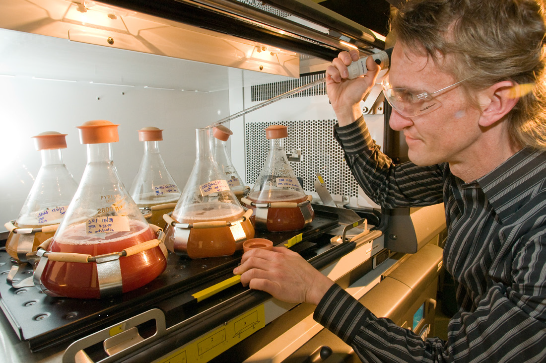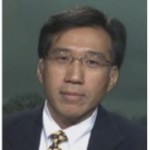
Next Generation Energy Security Conference: Renewable Transportation – Policy Options to Break the Oil Monopoly
Panel Two: Renewable Transportation – Policy Options to Break the Oil Monopoly
| September 30th, 2014 |
| 11.00 am – 12.00 pm |
| Location: 1100 New York Avenue, NW 7th Floor, West Tower |
Join ASP and our panelists in a discussion about the next generation of energy technology and climate policy.
For nearly a decade, policymakers have attempted to more effectively incentivize the development of sustainable alternatives to petroleum as a transportation fuel. Mandates, subsidies, and other policies have succeeded in replacing 10% of the fuel supply with ethanol grown in the U.S. and have begun to create a network of battery-operated vehicles. But, these efforts are as yet incomplete, with further policy advances being hampered by the domestic boom in oil.
The U.S. Department of Defense is leading the way. They are pursuing plans to enhance our domestic advanced biofuel production. They are reducing petroleum use on the battlefield, saving lives. They are using renewable energy, microgrids, and advanced batteries where appropriate.
These developments are important steps towards developing a real advanced biofuel industry that can help move us toward a point where we have other options for how to fuel our cars and trucks. Our panelists will discuss the ways in which biofuels and battery-operated vehicles are becoming a reality, helping to finally break the American economy’s addiction to oil for transportation.
Speakers:
Chair: Julia Pyper
 Originally from a horse farm outside of Toronto, Ontario, Julia Pyper now lives and works in Washington D.C. She began reporting for E&E Publishing,ClimateWire in 2011 and has covered a wide range of clean tech and climate change issues, from landmark federal fuel economy regulations and the development of highly efficient vehicles to Superstorm Sandy recovery efforts.
Originally from a horse farm outside of Toronto, Ontario, Julia Pyper now lives and works in Washington D.C. She began reporting for E&E Publishing,ClimateWire in 2011 and has covered a wide range of clean tech and climate change issues, from landmark federal fuel economy regulations and the development of highly efficient vehicles to Superstorm Sandy recovery efforts.
Panelist: James Chen
 Jim joined Tesla in August of 2010 and currently serves as the Company’s Vice President of Regulatory Affairs Based in Washington, D.C., Jim is responsible for all aspects of government affairs and regulation at the international, federal and state levels for Tesla. He also serves as the Company’s Associate General Counsel where he is tasked with ensuring compliance with the legal requirements applicable to Tesla’s products and facilities. In his spare time, Jim also assists on business deals for the Company including furthering Tesla relationships with strategic partners in the established automobile industry.
Jim joined Tesla in August of 2010 and currently serves as the Company’s Vice President of Regulatory Affairs Based in Washington, D.C., Jim is responsible for all aspects of government affairs and regulation at the international, federal and state levels for Tesla. He also serves as the Company’s Associate General Counsel where he is tasked with ensuring compliance with the legal requirements applicable to Tesla’s products and facilities. In his spare time, Jim also assists on business deals for the Company including furthering Tesla relationships with strategic partners in the established automobile industry.
Panelist: Erick Lutt
 Erick Lutt is a Director for Policy for the Biotechnology Industry Organization’s (BIO) Industrial and Environmental Section (IES). In this role, Erick is responsible for developing policy options for the IES Governing Board and working groups, and focuses on advanced and cellulosic biofuels, algae biofuels, biobased products, and agricultural feedstocks. This policy work entails working with members of Congress on energy, environment, agricultural & tax legislation and the Administration on a wide range of regulatory affairs.
Erick Lutt is a Director for Policy for the Biotechnology Industry Organization’s (BIO) Industrial and Environmental Section (IES). In this role, Erick is responsible for developing policy options for the IES Governing Board and working groups, and focuses on advanced and cellulosic biofuels, algae biofuels, biobased products, and agricultural feedstocks. This policy work entails working with members of Congress on energy, environment, agricultural & tax legislation and the Administration on a wide range of regulatory affairs.
Prior to joining BIO, Erick worked for former United States Senator Ben Nelson of Nebraska as his Legislative Assistant for Agriculture, Biofuels, Biotech, Energy, Environment, and Trade. In this capacity, he handled all of Senator Nelson’s legislative and regulatory efforts on these issues. Senator Nelson was also a member of the Senate Committee on Agriculture, Nutrition, and Forestry, where Erick advanced the Senator’s Committee work and championed the Senator’s policy objectives for the Senate passed 2012 farm bill. Erick has a degree in Government and International Affairs from Augustana College in Sioux Falls, South Dakota.
Panelist: Dr. Amgad Elgowainy
 Dr. Elgowainy is a Principal Energy Systems Analyst and the Life-Cycle Analysis Team Lead at the Argonne National Laboratory. He conducts analysis of alternative transportation fuels and advanced vehicle technologies. He contributed to the development of the GREET suite of models for life-cycle accounting of energy and emissions of alternative fuel/vehicle systems. His research and analysis cover petroleum and natural gas vehicles, biofuels, plug-in hybrid and battery electric vehicles, and hydrogen fuel cell vehicles. Dr. Elgowainy provides project and technical support forDOE’s Vehicle Technologies, Fuel Cell Technologies and Bioenergy Technologies Offices. He has been affiliated with Argonne National Laboratory for over 10 years andauthored over 50 papers and technical publications.
Dr. Elgowainy is a Principal Energy Systems Analyst and the Life-Cycle Analysis Team Lead at the Argonne National Laboratory. He conducts analysis of alternative transportation fuels and advanced vehicle technologies. He contributed to the development of the GREET suite of models for life-cycle accounting of energy and emissions of alternative fuel/vehicle systems. His research and analysis cover petroleum and natural gas vehicles, biofuels, plug-in hybrid and battery electric vehicles, and hydrogen fuel cell vehicles. Dr. Elgowainy provides project and technical support forDOE’s Vehicle Technologies, Fuel Cell Technologies and Bioenergy Technologies Offices. He has been affiliated with Argonne National Laboratory for over 10 years andauthored over 50 papers and technical publications.
Panelist: Ken Hill
 Ken Hill joined DuPont Biofuels as Business Development and Licensing Leader after a distinguished 20 year career in Oil Refining and Chemicals businesses at DuPont. DuPont’s Cellulosic Ethanol technology is a combination of DuPont’s chemical know-how and biotechnology leadership and DuPont Pioneer’s agricultural expertise. Together, DuPont has created a world leading Cellulosic Ethanol company; delivering comprehensive, integrated technology, engineering, and service solutions for global licensees to convert agricultural residues and energy crops to second generation ethanol. Ken’s responsibilities include developing, marketing, and delivering Cellulosic Ethanol technology packages to global customers. Prior to joining the Biofuels business, he worked in DuPont’s Clean Technologies division focusing on marketing and project development/licensing in Brazil, Europe, Middle East, India, US, and China. He has extensive experience in oil refining and industrial chemical sales, marketing, construction, and manufacturing. Ken joined DuPont in 1988 after graduating with a Bachelor of Science degree in Chemical Engineering from Mississippi State University.
Ken Hill joined DuPont Biofuels as Business Development and Licensing Leader after a distinguished 20 year career in Oil Refining and Chemicals businesses at DuPont. DuPont’s Cellulosic Ethanol technology is a combination of DuPont’s chemical know-how and biotechnology leadership and DuPont Pioneer’s agricultural expertise. Together, DuPont has created a world leading Cellulosic Ethanol company; delivering comprehensive, integrated technology, engineering, and service solutions for global licensees to convert agricultural residues and energy crops to second generation ethanol. Ken’s responsibilities include developing, marketing, and delivering Cellulosic Ethanol technology packages to global customers. Prior to joining the Biofuels business, he worked in DuPont’s Clean Technologies division focusing on marketing and project development/licensing in Brazil, Europe, Middle East, India, US, and China. He has extensive experience in oil refining and industrial chemical sales, marketing, construction, and manufacturing. Ken joined DuPont in 1988 after graduating with a Bachelor of Science degree in Chemical Engineering from Mississippi State University.
More information:
Conference Details : What’s Next? Fostering the Next Generation of Energy Security Conference
Panel One: Natural Gas/LNG – Using American Resources and Know-How to Build a World Market
Panel Two: Renewable Transportation – Policy Options to Break the Oil Monopoly
Panel Three: Energy Technology of Tomorrow – how can Government foster that innovation?
Panel Four: Powering the Future – Prospects for Fusion Energy






[…] Panel Two: Renewable Transportation – Policy Options to Break the Oil Monopoly […]
[…] Panel Two: Renewable Transportation – Policy Options to Break the Oil Monopoly […]
[…] Panel Two: Renewable Transportation – Policy Options to Break the Oil Monopoly […]
[…] Panel Two: Renewable Transportation – Policy Options to Break the Oil Monopoly […]
[…] Panel Two: Renewable Transportation – Policy Options to Break the Oil Monopoly […]